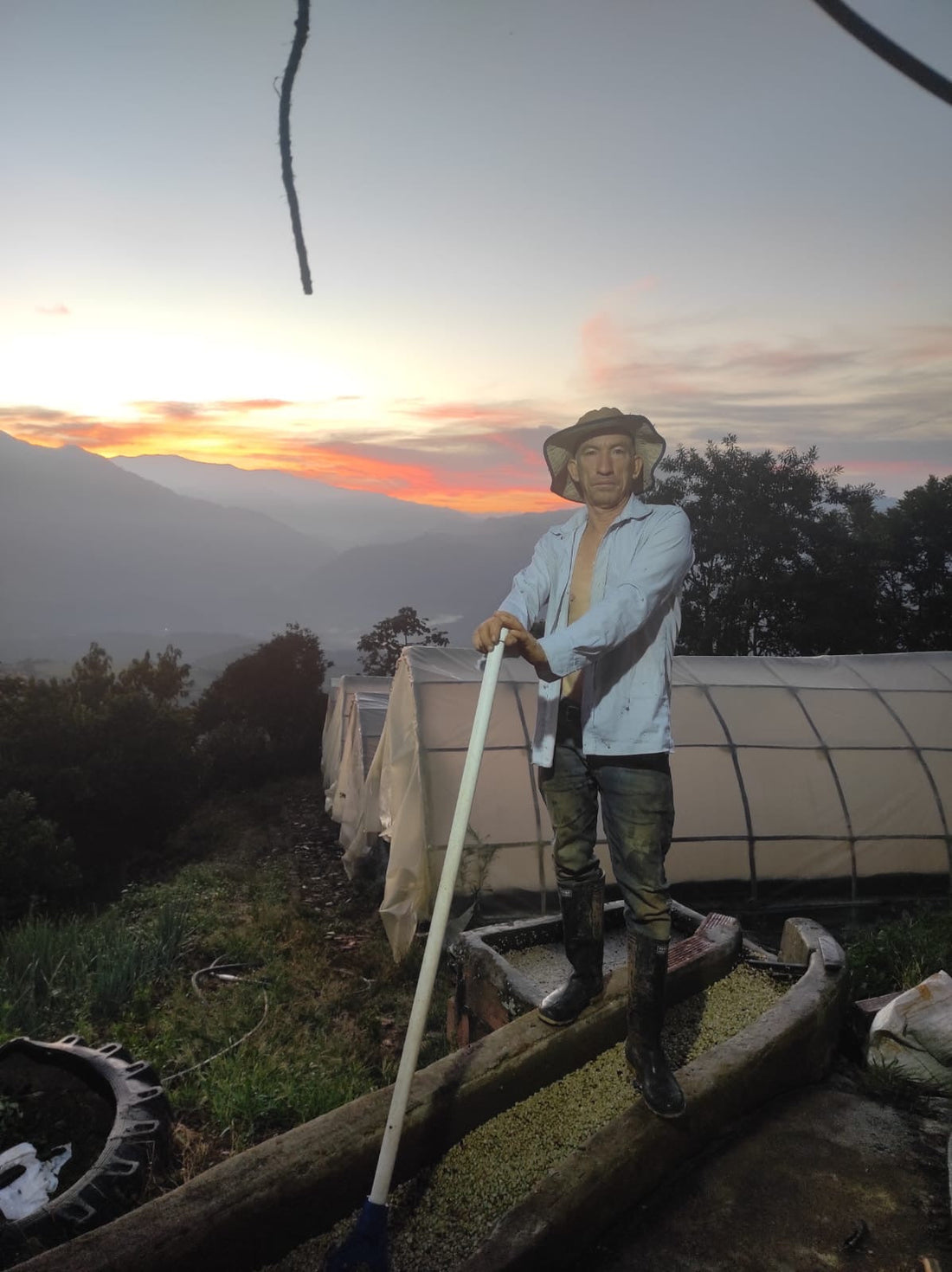A Coffee with History
Every cup of La Maria Coffee holds more than just exceptional flavors—it carries the history of a family deeply rooted in Colombian coffee farming. Nestled in the lush mountains of Southwestern Antioquia, Colombia, La Maria Coffee Farm is a testament to dedication, tradition, and the pursuit of excellence. This is the story of Adolfo Taborda and his wife, Zoe, the stewards of this legacy.
A Name That Honors Generations
The name La Maria is more than just a label; it’s a tribute to Maria, the grandmother of Adolfo’s father. The farm’s first owner, Don Jesús Londoño, was part of a family that worked on a neighboring estate called La Suiza. Through years of hard work, they acquired a section of La Suiza, which became La Maria—a name chosen to honor the family matriarch and the sacrifices made by generations before.
A Lifelong Commitment to Coffee
For Adolfo Taborda, coffee is more than a livelihood—it’s a way of life passed down through generations. “My grandparents, my father, and I have all lived off coffee,” he says with pride. This deep connection to coffee farming fuels his dedication to producing exceptional specialty coffee, ensuring that every bean embodies the rich history and hard work of his family.
Growing the Perfect Beans
At La Maria Coffee Farm, the pursuit of quality begins at the source. The farm is blessed with ideal growing conditions—rich volcanic soil, high altitude, and a climate that fosters slow, even bean development. Adolfo and Zoe carefully cultivate Red and Yellow Castillo beans, known for their balanced acidity and vibrant flavor profile.
Sustainability is also at the heart of their farming practices. By using eco-friendly methods and respecting traditional techniques, they ensure that La Maria coffee is not only delicious but also ethically and environmentally responsible.
The Harvest: A Tradition of Excellence
Unlike mass-produced coffee, the beans at La Maria are hand-picked at peak ripeness. This selective harvesting method guarantees the best quality beans, preserving the farm’s commitment to excellence. Each cherry undergoes a meticulous washed process, enhancing the clarity and brightness of the final cup. After drying and milling, the beans are carefully inspected to ensure that only the best make it to your coffee cup.
Roasting & Flavor: A Cup That Tells a Story
At El Viajero Coffee, we take Adolfo’s hard work one step further, roasting La Maria Medium Roast to perfection. The result? A cup with tasting notes of green apple, almond, and chocolate—a well-balanced, smooth, and aromatic experience. With a Cup Score of 86.6, La Maria is a true high-quality specialty coffee.
Why Direct Trade Matters
By sourcing directly from La Maria, El Viajero Coffee ensures that farmers receive fair compensation for their work while maintaining complete transparency in the supply chain. This direct trade model benefits both producers and consumers—allowing coffee lovers to enjoy a superior product while knowing they are supporting sustainable farming.
“When you drink La Maria coffee, you’re not just tasting great coffee—you’re experiencing the legacy of a family that has dedicated their lives to this craft,” says Adolfo.
Experience La Maria Coffee
Are you ready to taste the legacy of La Maria Coffee Farm? Order a bag of La Maria Medium Roast from El Viajero Coffee and experience the rich flavors of Colombian coffee tradition.
☕ Shop Now & Savor the Story in Every Sip!
Conclusion: A Legacy in Every Cup
From the mountains of Antioquia to your coffee cup, La Maria Coffee is more than just a beverage—it’s a story of passion, perseverance, and family heritage. Every sip connects you to the dedication of Adolfo, Zoe, and their ancestors, making your coffee experience truly special.
Stay Connected! Follow us on Instagram and Facebook for updates on farm stories, brewing tips, and exclusive coffee releases.

